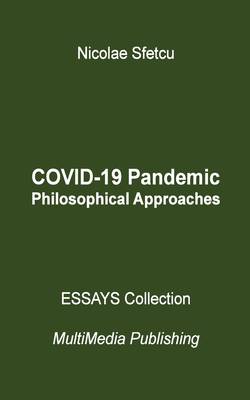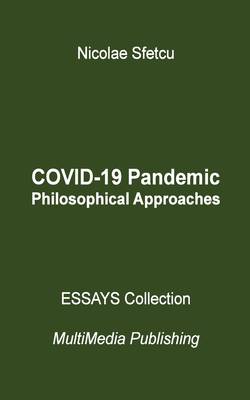
- Retrait gratuit dans votre magasin Club
- 7.000.000 titres dans notre catalogue
- Payer en toute sécurité
- Toujours un magasin près de chez vous
- Retrait gratuit dans votre magasin Club
- 7.000.0000 titres dans notre catalogue
- Payer en toute sécurité
- Toujours un magasin près de chez vous
34,45 €
+ 68 points
Format
Description
The paper begins with a retrospective of the debates on the origin of life: the virus or the cell? The virus needs a cell for replication, instead the cell is a more evolved form on the evolutionary scale of life. In addition, the study of viruses raises pressing conceptual and philosophical questions about their nature, their classification, and their place in the biological world. The subject of pandemics is approached starting from the existentialism of Albert Camus and Sartre, the replacement of the exclusion ritual with the disciplinary mechanism of Michel Foucault, and about the Gaia hypothesis, developed by James Lovelock and supported in the current pandemic by Bruno Latour. The social dimensions of pandemics, their connection to global warming, which has led to an increase in infectious diseases, and the deforestation of large areas, which have caused viruses to migrate from their native area (their "reservoir") are highlighted below. The ethics of pandemics is approached from several philosophical points of view, of which the most important in a crisis of such global dimensions is utilitarianism which involves maximizing benefits for society in direct conflict with the usual (Kantian) view of respect for people as individuals. After a retrospective of the COVID-19 virus that caused the current pandemic, its life cycle and its history, with an emphasis on the philosophy of death, the concept of biopower initially developed by Foucault is discussed, with reference to the practice of modern states of control of the populations and the debate generated by Giorgio Agamben who states that what is manifested in this pandemic is the growing tendency to use the state of emergency as a normal paradigm of government. An interesting and much debated approach is the one generated by the works of Slavoj Zizek, who states that the current pandemic has led to the bankruptcy of the current "barbaric" capitalism.
Spécifications
Parties prenantes
- Auteur(s) :
- Editeur:
Contenu
- Nombre de pages :
- 164
- Langue:
- Anglais
Caractéristiques
- EAN:
- 9781715909550
- Date de parution :
- 13-05-21
- Format:
- Livre broché
- Format numérique:
- Trade paperback (VS)
- Dimensions :
- 127 mm x 203 mm
- Poids :
- 167 g

Les avis
Nous publions uniquement les avis qui respectent les conditions requises. Consultez nos conditions pour les avis.






